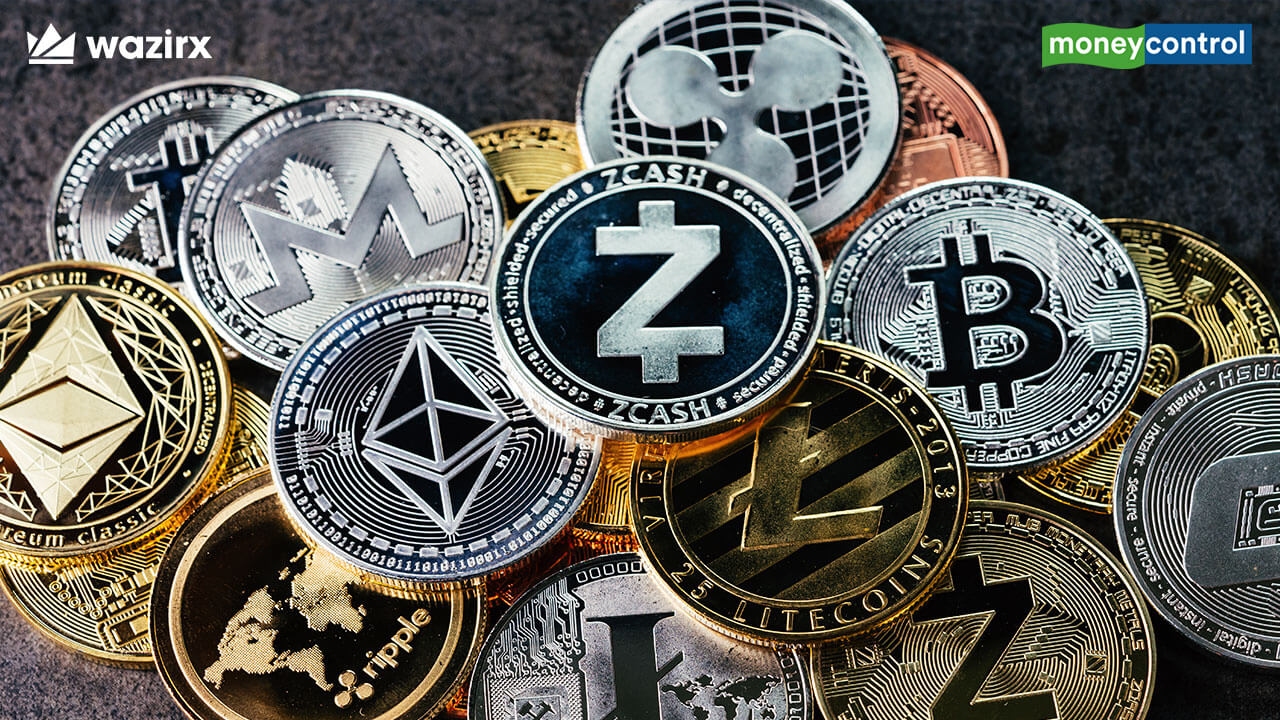Introduction to Cryptocurrencies: What You Need to Know

- What are cryptocurrencies and how do they work?
- The history and evolution of cryptocurrencies
- Key terms and concepts in the world of cryptocurrencies
- Benefits and risks of investing in cryptocurrencies
- Popular cryptocurrencies to watch out for
- How to securely store and manage your cryptocurrency assets
What are cryptocurrencies and how do they work?
Cryptocurrencies are digital assets that use cryptography for security and operate independently of a central authority, such as a government or financial institution. They are decentralized and rely on a technology called blockchain to record transactions and manage the issuance of new units.
One of the key features of cryptocurrencies is their transparency and immutability. Transactions made with cryptocurrencies are recorded on a public ledger that is accessible to anyone. Once a transaction is recorded on the blockchain, it cannot be altered or deleted, providing a high level of security and trust in the system.
To understand how cryptocurrencies work, it is essential to grasp the concept of mining. Mining is the process by which transactions are verified and added to the blockchain. Miners use powerful computers to solve complex mathematical puzzles, and in return, they are rewarded with newly minted coins. This process ensures the integrity of the blockchain and prevents double-spending.
Cryptocurrencies can be used for various purposes, such as online purchases, investment, and remittances. They offer lower transaction fees compared to traditional banking systems and provide greater privacy and security. However, the value of cryptocurrencies can be volatile, making them a high-risk investment.
Overall, cryptocurrencies are revolutionizing the way we think about money and finance. By leveraging blockchain technology, they offer a secure, transparent, and decentralized alternative to traditional currencies. As the popularity of cryptocurrencies continues to grow, it is essential to stay informed and educated about this rapidly evolving space.
The history and evolution of cryptocurrencies
Cryptocurrencies have a rich history that dates back to the early 2000s. The concept of digital currency was first introduced by an individual or group of individuals using the pseudonym Satoshi Nakamoto in 2008. This marked the beginning of the most well-known cryptocurrency, Bitcoin. Since then, cryptocurrencies have evolved significantly, with thousands of different digital currencies now available in the market.
The evolution of cryptocurrencies has been driven by advancements in technology and changes in the financial landscape. As more people began to see the potential of digital currencies, new cryptocurrencies were created to address different needs and challenges. This led to the development of alternative coins, or altcoins, such as Ethereum, Litecoin, and Ripple.
One of the key features of cryptocurrencies is their decentralized nature. Unlike traditional currencies that are controlled by governments and financial institutions, cryptocurrencies operate on a peer-to-peer network. This means that transactions are verified by network participants rather than a central authority, making them more secure and transparent.
Over the years, cryptocurrencies have gained popularity as a means of investment and a medium of exchange. People all over the world are now using digital currencies to buy goods and services, invest in new projects, and even send money across borders. The rise of cryptocurrencies has also sparked debates about their impact on the traditional financial system and the future of money.
In conclusion, the history and evolution of cryptocurrencies have been marked by innovation, challenges, and opportunities. As digital currencies continue to gain mainstream acceptance, it is important for individuals to understand how they work and the potential risks and rewards involved. Whether you are a seasoned investor or just getting started with cryptocurrencies, staying informed and educated is key to navigating this exciting and dynamic market.
Key terms and concepts in the world of cryptocurrencies
When delving into the world of cryptocurrencies, it is essential to familiarize yourself with key terms and concepts that are commonly used in this space. Understanding these terms will help you navigate the complex landscape of digital currencies and make informed decisions when investing or trading. Below are some important terms to know:
- Cryptocurrency: A digital or virtual form of currency that uses cryptography for security and operates independently of a central authority.
- Blockchain: A decentralized, distributed ledger that records all transactions across a network of computers.
- Wallet: A digital tool that allows users to store, send, and receive cryptocurrencies.
- Bitcoin: The first and most well-known cryptocurrency, created by an unknown person or group of people using the pseudonym Satoshi Nakamoto.
- Altcoin: Any cryptocurrency other than Bitcoin, such as Ethereum, Ripple, or Litecoin.
- Mining: The process of validating transactions and adding them to the blockchain using powerful computers.
- Exchange: A platform where users can buy, sell, and trade cryptocurrencies.
- Wallet: A digital tool that allows users to store, send, and receive cryptocurrencies.
- Decentralization: The distribution of power and control away from a central authority or entity.
- Smart Contract: Self-executing contracts with the terms of the agreement directly written into code.
By familiarizing yourself with these key terms and concepts, you will be better equipped to understand the world of cryptocurrencies and make informed decisions about how to participate in this rapidly evolving industry.
Benefits and risks of investing in cryptocurrencies
Investing in cryptocurrencies can offer a range of benefits, but it also comes with its fair share of risks. One of the main advantages of investing in cryptocurrencies is the potential for high returns. The value of cryptocurrencies can fluctuate significantly, providing opportunities for investors to make substantial profits. Additionally, cryptocurrencies offer a level of anonymity and security that traditional forms of investment may not provide.
However, it is important to be aware of the risks associated with investing in cryptocurrencies. One of the main risks is the volatility of the market. Cryptocurrency prices can be highly unpredictable, leading to potential losses for investors. Furthermore, the lack of regulation in the cryptocurrency market can make it vulnerable to fraud and scams. Investors also face the risk of hacking and security breaches, which can result in the loss of their investments.
In conclusion, investing in cryptocurrencies can be a lucrative opportunity, but it is essential to approach it with caution. It is important to thoroughly research the market and understand the risks involved before investing. By staying informed and being mindful of the potential pitfalls, investors can make informed decisions and potentially reap the benefits of this exciting and evolving market.
Popular cryptocurrencies to watch out for
When it comes to cryptocurrencies, there are several popular options that investors should keep an eye on. These digital assets have gained significant attention in recent years due to their potential for high returns. Some of the top cryptocurrencies to watch out for include:
- Bitcoin (BTC): As the first cryptocurrency ever created, Bitcoin remains the most well-known and widely used digital currency. It has a limited supply, which has helped to drive up its value over time.
- Ethereum (ETH): Ethereum is a decentralized platform that enables developers to build and deploy smart contracts and decentralized applications (dApps). Its native cryptocurrency, Ether, is used to power transactions on the network.
- Ripple (XRP): Ripple is a digital payment protocol that aims to facilitate fast and low-cost cross-border transactions. XRP is the native cryptocurrency used on the Ripple network.
- Litecoin (LTC): Created by Charlie Lee, Litecoin is often referred to as the silver to Bitcoin’s gold. It offers faster transaction times and lower fees compared to Bitcoin.
- Cardano (ADA): Cardano is a blockchain platform that aims to provide a more secure and scalable infrastructure for the development of decentralized applications and smart contracts. ADA is the native cryptocurrency of the Cardano network.
These are just a few examples of the many cryptocurrencies that are available in the market today. It’s important for investors to conduct thorough research and due diligence before investing in any digital asset to understand the risks and potential rewards involved.
How to securely store and manage your cryptocurrency assets
When it comes to **securely storing and managing** your **cryptocurrency assets**, it is crucial to take the necessary precautions to protect your investments. Here are some **tips** to help you keep your **digital assets** safe:
- Consider using a **hardware wallet** to store your **cryptocurrencies** offline. This type of wallet is considered one of the most **secure** options available.
- Make sure to **backup** your **wallet** and **private keys** in multiple secure locations. This will help you **recover** your **assets** in case of loss or theft.
- Enable **two-factor authentication** on all your **exchange** and **wallet** accounts to add an extra layer of **security**.
- Avoid storing large amounts of **cryptocurrency** on **exchange** platforms. Instead, transfer them to your **hardware wallet** for **safekeeping**.
- Regularly update your **wallet** software to ensure you have the latest **security** features and **protections** against **cyber threats**.
By following these **best practices**, you can help **protect** your **cryptocurrency** **assets** from **hackers** and **security breaches**. Remember, it is always better to be **safe** than **sorry** when it comes to **managing** your **digital investments**.




